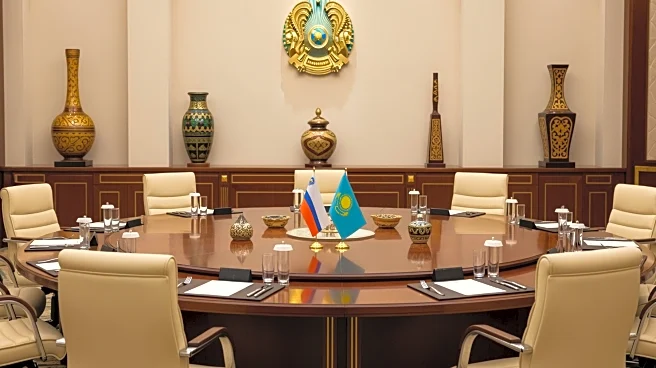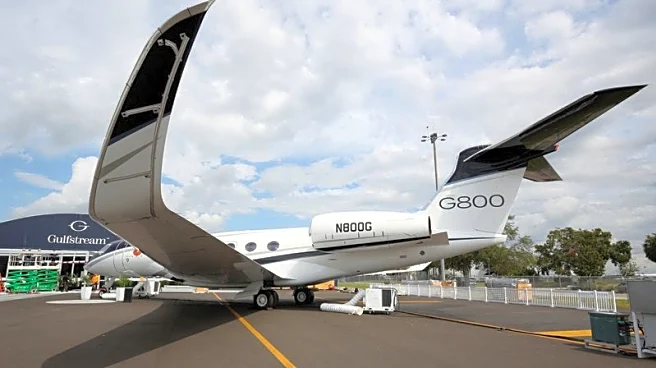What's Happening?
President Donald Trump is hosting leaders from five Central Asian nations at the White House as part of efforts to counter China and Russia's influence in the region. The meeting focuses on securing critical
minerals, energy supplies, and trade routes. The U.S. aims to establish partnerships to diversify supply chains away from Moscow and Beijing. The C5+1 platform, launched in 2015, includes Kazakhstan, Kyrgyzstan, Tajikistan, Turkmenistan, and Uzbekistan, and seeks to advance cooperation on economic, energy, and security issues.
Why It's Important?
The meeting underscores the strategic importance of Central Asia's mineral resources and the geopolitical competition between the U.S., China, and Russia. Securing access to critical minerals is vital for U.S. energy and defense industries. The outcome of the talks could influence global supply chains and international relations. Stakeholders such as mining companies, energy firms, and political leaders may be affected by the agreements and partnerships formed during this meeting.
What's Next?
The U.S. may pursue further diplomatic and commercial engagements to secure mineral resources and reduce reliance on China and Russia. Central Asian countries may seek to balance relations with major powers while advancing their economic interests. Political leaders and civil society groups may advocate for sustainable and transparent resource management.
Beyond the Headlines
The situation raises ethical and environmental concerns about resource extraction and geopolitical competition. It may influence public opinion and political discourse on energy policies and international relations. Long-term implications could include shifts in global power dynamics and the re-evaluation of strategic alliances.










